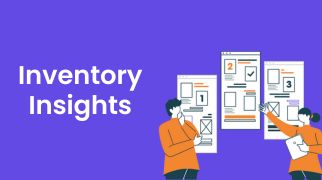Meet our team – Peter Drakeley
Seventeen years at EazyStock represents serious expertise and commitment. To mark this milestone, we sat down with our CRO Peter Drakeley to discuss his supply chain background, the PhD research influencing his work, and his perspective on inventory optimization. We explored his proudest achievements, the common mistakes he sees companies make, and what drives him both professionally and personally. Here’s what he had to say.

Looking back over your 16+ years in supply chain, what achievements are you most proud of?
People often assume supply chain is all about the numbers — stock turn, availability, ROI — but that’s not really what drives me. For me, the real achievement is the cultural shift that happens when a business finally gets control. I’ve seen companies go from accepting chaos and stockouts as “just the way it is” to having genuine pride in how they serve their customers.
Yes, I like KPIs as much as anyone, but the moments that stick with me are the cultural transformations.
From a personal perspective, I’m also proud of the times I’ve had to adapt — learning something new, researching deeply or building something from scratch — and seeing it make a real difference for people.
Can you tell us about your supply chain background and how it helps you support customers?
I’ve been lucky enough to work with businesses of all shapes and sizes, across many industries. I’ve seen how things really run, and the massive challenges that are often outside day-to-day control — the tribal knowledge, the creaky spreadsheets, the silent stress behind decisions.
I’ve also done a lot of research, and I spent four years studying Theoretical Physics, so I love a beautiful mathematical model. But I see the big gap between ideal and reality; what I mean by that is some things that are great in theory are not practically applicable. That massively influences my approach; I just try to understand how things work today and help people move forward from where they actually are, not where some abstract model says they should be. What are the incremental improvements we can make that will add up and make the biggest difference…

You’re currently pursuing a PhD in inventory optimization. How does that research influence your work and decision-making?
It’s made me less reactive. When you study something deeply, you start seeing patterns everywhere and you realize most “problems” aren’t really problems, they’re symptoms. So instead of jumping to fixes, I try to slow things down and get to the root of how decisions are being made, put that into some sort of framework to draw out the key aspects and move forward from there.
I love understanding and distilling the essence of a situation, and everyone loves a Drakeley framework…at least that’s what they tell me!!
What’s the most common mistake companies make in inventory management, and how do you help them avoid it?
They underestimate the hidden cost of getting it wrong. Inventory isn’t just about stock levels — it impacts customer satisfaction, brand perception and even internal culture. Getting inventory right is probably the single biggest lever a stock-holding business has to improve itself across multiple fronts.
What makes EazyStock different from other supply chain solutions on the market?
Our supply chain centricity and focus on user adoption are unique. You can have the greatest system in the world, but if no one can or wants to use it, you might as well stick with your spreadsheet.

What advice would you give to someone starting their career in supply chain?
Be endlessly curious. Supply chain spans the whole business, it may be the one function that really does, and it is constantly evolving…I would advise people to develop the ability to learn independently, whether it’s by listening to colleagues, reading books, getting into podcasts, online courses, or getting a mentor. Never, ever stop learning, and you will do alright!
Outside of work, what drives or inspires you?
I want to leave the world in better shape than when I found it. Whether it’s helping as many companies as I can get their supply chain right, encouraging my EazyStock buddies to be the best version of themselves, or coaching kids’ sports teams, the motivation is always the same; make things better.
Basically, when the music’s over, I just hope people say, “he was helpful, and mostly not a pain.”
What’s something about you most people don’t know?
Most people know me as quite analytical, but outside of work I’m often deep in a physics book, bashing out a Sabbath riff, or trying to shave 30 seconds off my 5K. I like to think I’m balancing intellectual curiosity, creativity, and physical ambition. In reality, I’m just flipping between existential crises and tight hamstrings.





